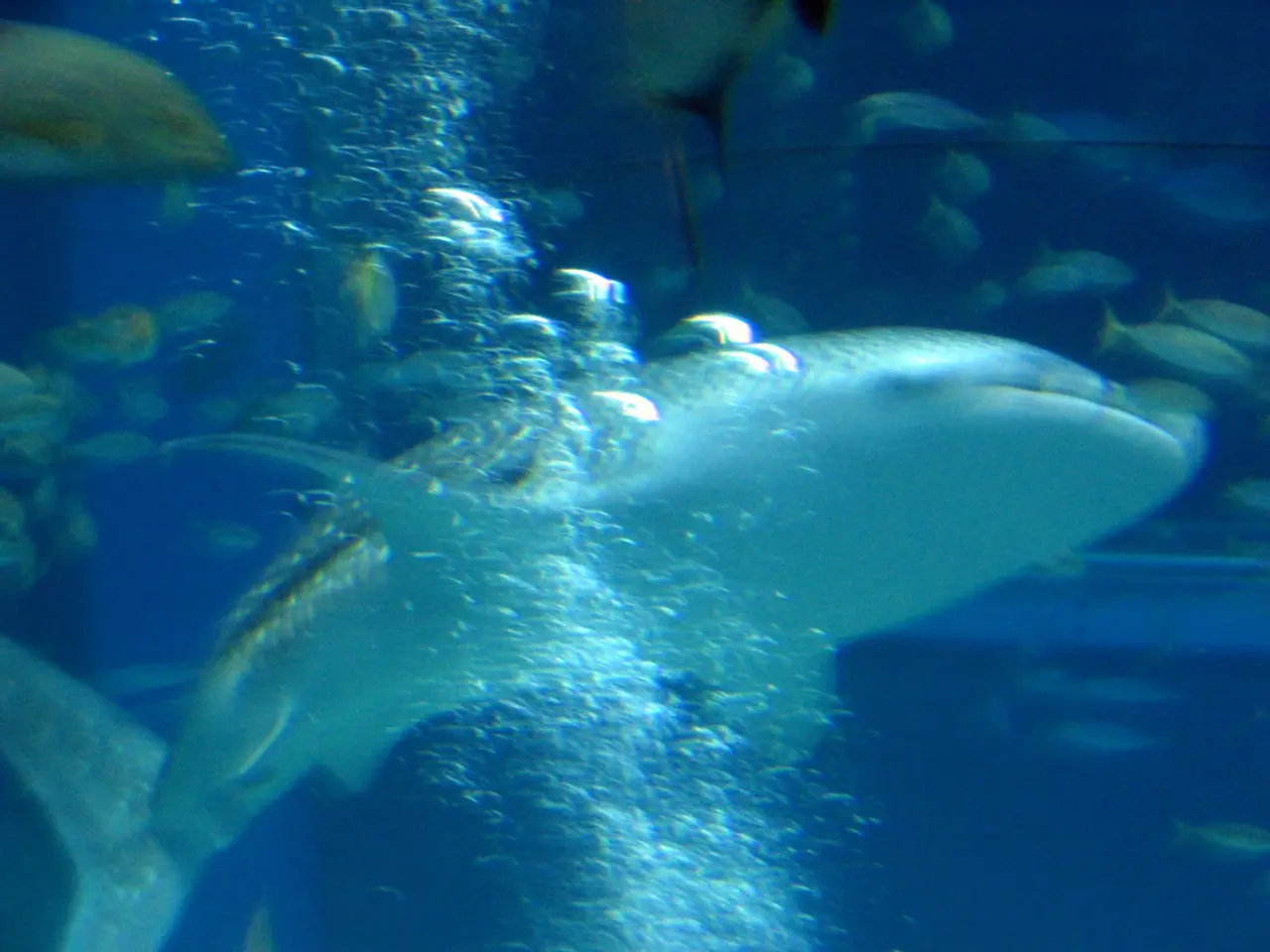Experts debunk assertions of colossal sharks endangering Turkey's shores
In recent times, there has been an increase in shark sightings off the coast of Turkey, causing a stir among locals and tourists alike. However, a closer look at the facts suggests that this apparent rise might be more a product of increased human activity and reporting rather than a sudden increase in shark populations.
Professor M. Cengiz Deval, a member of the Fisheries and Aquaculture Science Committee at the Ministry of Agriculture and Forestry in Turkey, has been quick to reassure the public that tourists and swimmers should not worry about shark encounters. Contrary to fears fueled by online videos, Turkey's shark population does not pose a significant threat to humans.
The Mediterranean Sea, which borders Turkey, has extremely rare shark attacks and encounters. In fact, no recorded cases of sharks threatening people have been reported in Turkey. Globally, shark populations have been declining sharply due to fishing pressures, habitat loss, and slow reproductive rates. This general decline makes a sudden population increase in Turkish waters unlikely.
Recent shark sightings may be more related to the activities of recreational fishermen and increased social media exposure. The western side of the Antalya Gulf drops steeply to depths of up to 1000 meters, creating an ideal deep-water habitat for sharks. The species living in the Antalya Gulf are not invaders but vital components of the ecosystem.
Sharks play a crucial role in the marine ecosystem by preying on weak or sick individuals, helping to maintain the balance and health of other fish populations. As top predators, sharks contribute to the sustainability of fish stocks, which are essential for both ecological and commercial purposes.
It's worth noting that the Ministry of Agriculture and Forestry in Turkey has been taking steps to protect these species. Since 2018, the number of shark and ray species under protection has been gradually increasing. The number of cartilaginous fish species listed as banned from fishing has risen from 12 to 25.
In conclusion, while shark sightings in Turkey may be more visible, they do not necessarily indicate a rise in shark populations. Instead, it seems that increased human activity and reporting are the primary factors behind this trend. So, the next time you spot a shark off the coast of Turkey, remember to appreciate its role in the ecosystem rather than fear it.
- Professor M. Cengiz Deval, a member of the Turkish Fisheries and Aquaculture Science Committee, is also involved in medical-conditions related to environmental science, as he works for the Ministry of Agriculture and Forestry in Turkiye.
- In Turkiye, there is a commitment to preserving the health and wellness of not only its human population but also its shark species, as shown by the Ministry's efforts to increase the number of protected shark and ray species since 2018.
- The coastal waters of Turkiye, particularly the Antalya Gulf, host a variety of shark species that are important for environmental-science studies, as they play a vital role in maintaining the balance and health of other fish populations by preying on weak or sick individuals.




